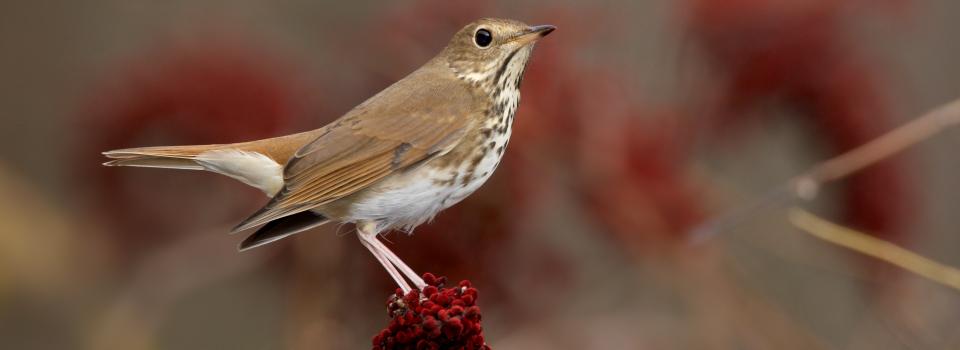
Hermit Thrush
Photo by: Robert Royse

Box Turtle
Photo by: Jonathan Mays
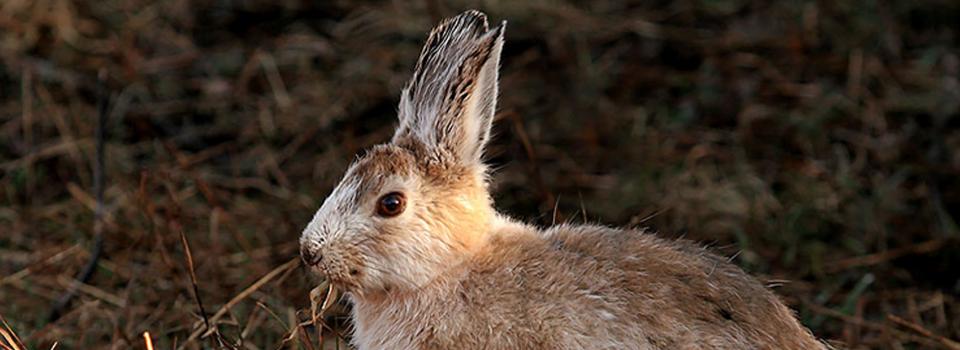
Snowshoe Hare
Photo by: Mike Hodgson
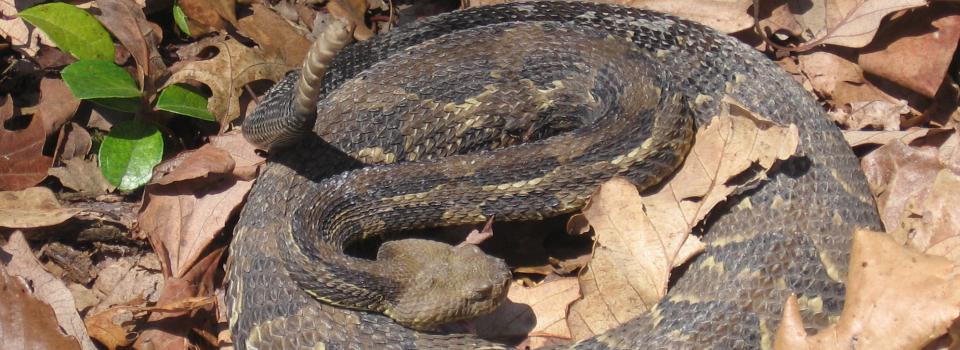
Timber Rattlesnake
Photo by: Kelly Wiley
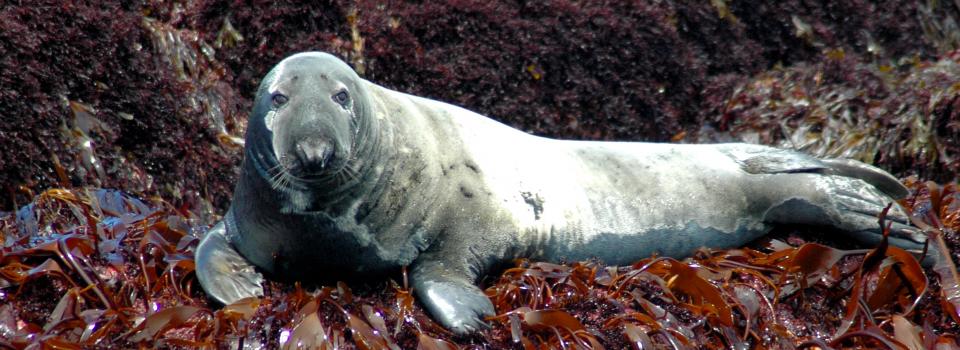
Gray Seal
Photo by: Jonathan Mays








Each U.S. jurisdiction in the NEAFWA has dedicated 4% of their annual State Wildlife Grant apportionment to RCN projects. Proposals for projects addressing Priority Project Topics will be accepted until March 1, 2015. Proposals will be reviewed by the Northeast Fish and Wildlife Diversity Committee, Northeast Habitat Technical Committee, Northeast Wildlife Administrators and the Northeast Fisheries Administrators. Final project awards will be decided by the Directors of the NEAFWA.
Priority Project Topics were developed by agency technical staff familiar with the development and implementation of SWAPs.
Eligible applicants include individuals, non-governmental organizations, state and federal agency employees, members of academia, and for-profit corporations.
Proposals are due by March 1, 2015. Proposals will be reviewed by WMI and by the USFWS to certify match and multi-state requirements. WMI may contact applicants for clarification or to allow for amendments to remove disqualifying elements. Eligible applications will be forwarded to Technical Review Committees by April 1. Highest ranking proposals will be submitted by the Technical Committee to the Northeast Fish and Wildlife Diversity Technical Committee for review and ranking. Proposal authors may be contacted by a technical representative to discuss potential refinement or clarification of proposal’ scope, goals, objectives or methods. Funding decisions will be made by the NEAFWA Directors at their fall meeting and funds will be available in early January.
Funding priority will be placed upon projects that are feasible and practical in 1-2 year time periods, are designed to address priority topics, and that leverage other sources of non-federal matching funds. Funds cannot be used to support political lobbying or capacity building of organizations.
The source of funding for Northeast RCN grants is from federal funds apportioned to the states through the State Wildlife Grant program.
Yes. A minimum of 50% of the total project budget must be generated through certified non-federal match. In-kind match is allowed.
The RCN Grants Program is a reimbursement program. Applicants must be prepared to fully fund their projects in the first instance and submit payment requests to WMI for reimbursement. All reimbursement requests must show expenditure of non-federal funds at least as great as the amount being requested in federal funds. Reimbursement requests must be approved by the NEAFWA project officer before payment is made. Approval will be based on progress and financial reports. Grant recipients will be required to enter into a service contract with WMI in order to receive payment. Payment requests may be submitted to WMI on a quarterly basis. No advance payments will be provided. WMI will retain 10% of the grant amount pending receipt of all contract deliverables. Upon NEAFWA’s approval of said deliverables, the final 10% retainage will be released to the grantee.
Proposals must be submitted as either MS Word or Adobe PDF documents to wmisw@together.net no later than March 1, 2015 at 5:00 PM Eastern Standard Time.
Yes, single organizations can submit multiple proposals within one priority topic area, or may submit proposals to more than one priority topic area.
Yes, partnerships in funding and/or delivery of project products are encouraged.
Grantees must meet federal eligibility requirements under this grant program. All funds awarded through this RFP are contingent upon the applicant meeting all federal permitting requirements. NEAFWA reserves the right to reallocate grant awards in the event that the project applicant cannot meet the federal or state grant and/or permitting requirements. Applicants are encouraged to contact the U.S. Fish and Wildlife Service for technical assistance on projects that may impact federally listed species. NEAFWA reserves the right to require minor revisions to selected applicant’s scope of work pending federal compliance review by the U.S. Fish and Wildlife Service staff. Modifications will not result in any increase in the award amount. Applicants selected to receive a grant may also have their proposed budgets revised pending federal review of eligibility of costs and matching funds. These revisions will not result in any increase in the award amount. Award amounts may be decreased as a result of disqualification of matching costs through the federal review process. It is the applicant’s responsibility to investigate the permits that may be required to carry out their proposal, and obtain all applicable federal or state permits.
Grant reimbursement payments will be based on actual expenditures incurred by the grantee that are necessary and reasonable to the accomplishment of the work. Grantees will be required to provide documentation of project-related costs, including submission of copies of invoices and cancelled checks, with each payment request. Grantees will be required to certify appropriate matching expenses from non-federal funding sources, including volunteer labor. Applicants are advised to review 2CFR225 “Cost Principles for State, Local, and Indian Tribal Governments (OMB Circular A–87)” or 2CFR230 “Cost Principles for Non-Profit Organizations (OMB Circular A–122)”. Applicant budgets may include billable expenses and matching costs related to the project in the following categories:
Costs related to the preparation of this application or any other costs incurred prior to notification from NEAFWA acknowledging final approval of the grant award, are NOT eligible for reimbursement and cannot be used as match. Costs related to land acquisition, purchase of development rights, and purchases of easements are not eligible for reimbursement under this program. These costs are not eligible as matching costs, either. Generally speaking, education and law enforcement activities are not eligible for funding or match under this program.
All applications received by the due date will be reviewed by WMI for completeness and eligibility. All projects that are deemed complete and eligible by WMI will be forwarded to U.S. Fish and Wildlife Service (USFWS) for federal compliance screening. Projects reviewed by the USFWS that are deemed unable to pass federal compliance requirements will be disqualified. Applications that are deemed by the USFWS to pass federal compliance screening will be evaluated by Northeast RCN Technical Coordinators and Northeast RCN Review Teams based using the General Scoring Criteria provided below.
RCN proposals will be graded according to the degree that the proposal meets the following criteria:
Applications that score high enough to be selected to receive an award will receive written notification from WMI acknowledging a “conditional” grant award. Conditional grant awards will be subject to federal State Wildlife Grants Program compliance as administered by the U.S. Fish and Wildlife Service. Once federal compliance is met, grantees will receive written notification from WMI acknowledging final approval of the grant award.
You may begin work once federal compliance is met, and you have received written notification from WMI of your final grant award. However, WMI advises grantees NOT to begin work until all required and necessary permits are obtained for the activities identified in their project proposal. Please note that grantees may not request or receive any reimbursement payments prior to completion of federal compliance.
At the discretion of NEFWA, principal investigators of RCN grant funds may be asked to present their findings at the annual meeting of the Northeast Wildlife Diversity Technical Committee or the Northeast Association of Fish and Wildlife Agencies annual meeting.
Reports will be featured on the RCN web page. Final reports will be submitted I n the format of Conservation Biology. Authors will be required to share publication quality graphics with publication rights to improve project communication.
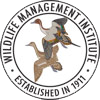
© 2020 A Wildlife Management Institute Project